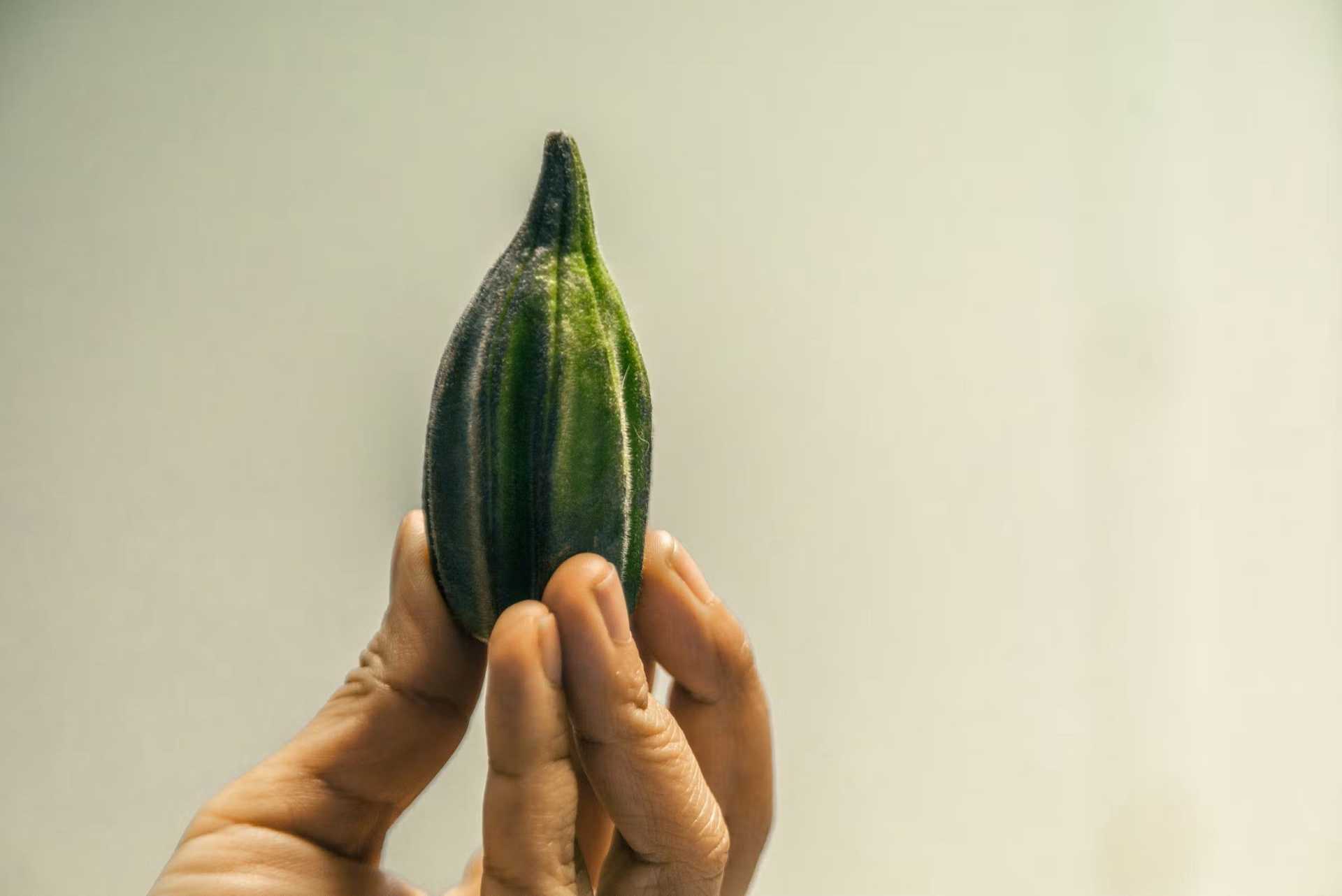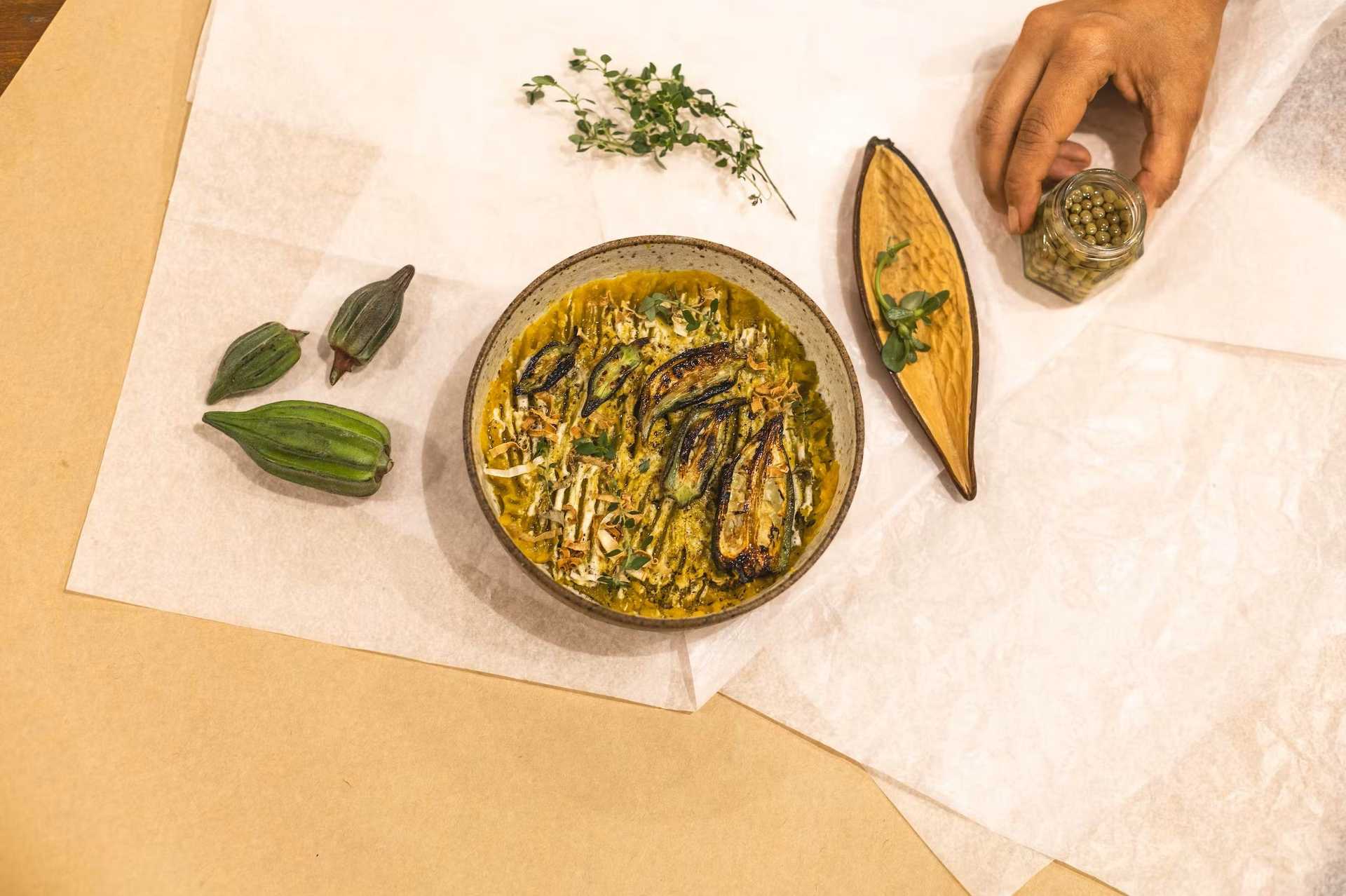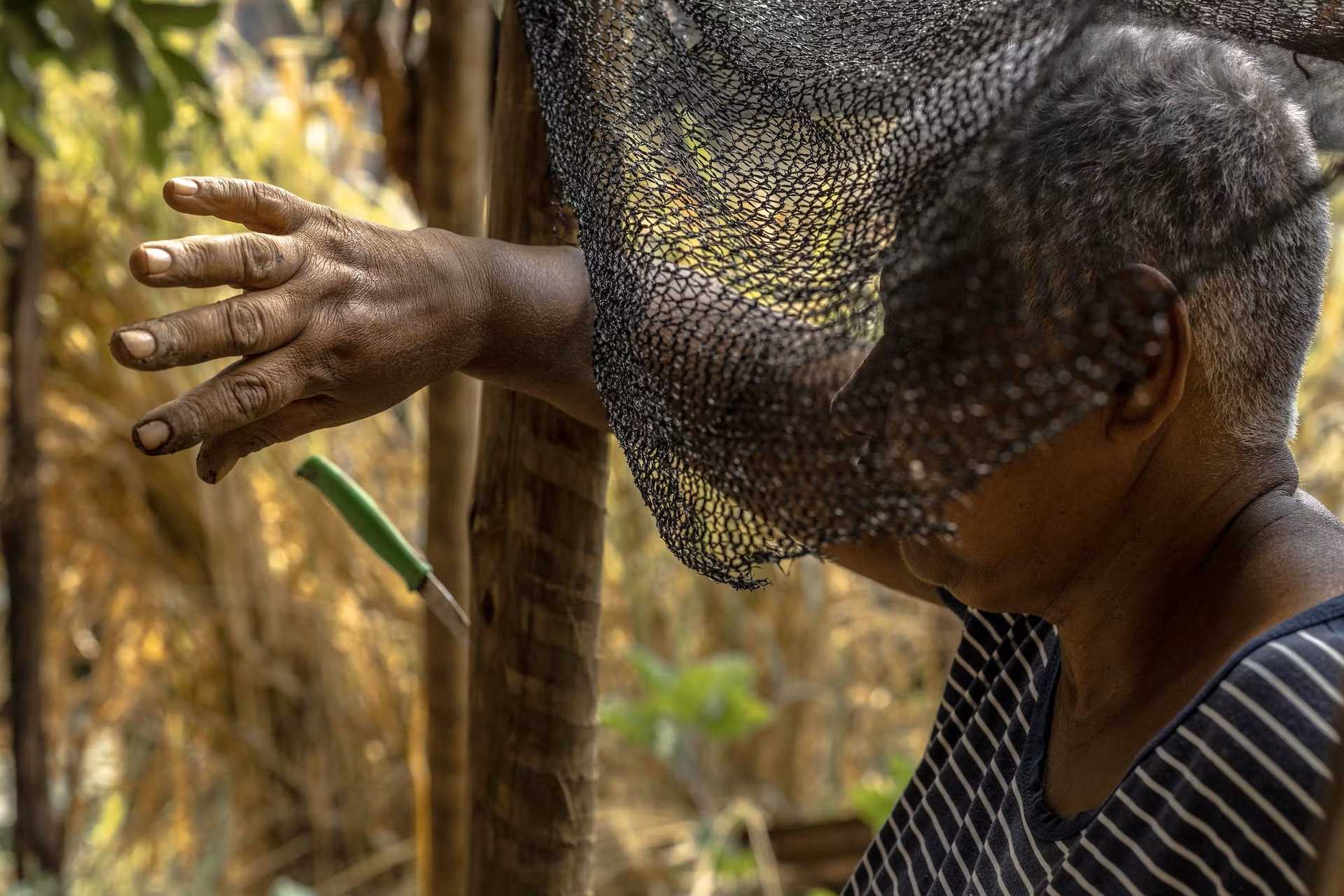“By practicing radical hospitality, foodculture days invites a transgenerational audience to connect and engage in urgent issues, such as our relationship with nature; the soil's narratives and foodscapes; seeds and access to resources; cultural identity and the notion of the terroir; the narratives stemming from migration; collective memory and the production of knowledge; as well as questions concerning the future of traditions within experiments of potential futures”Margaux Schwab, Director foodculture days
Pangea on a plate: Food culture, grilled okra, and pumpkin purée - this is foodculture days
What happens when artists, scientists, farmers, cooks, and winemakers come together? And when they are joined by philosophers, activists, and local experts who are all interested in food as a research subject and as a medium for convivial interaction? The results go way beyond the taste.
26. September 2024

The Okra © foodculture days.jpg
Project description
foodculture days
Boca A Boca
The newest online editorial project of foodculture days is called Boca A Boca (portuguese for “word of mouth”). Following a seasonal rhythm, Boca A Boca grows organically as a living archive and platform for the dissemination of thoughts and creative ideas. Each cycle is curated by guest editors who are invited to respond to a theme taken from foodculture days’s ongoing field research.
The latest publication examines the commons. Commons represent a seemingly universal and timeless form of social organization characterized, in short, by collective custody of and equal access to land and natural resources. Its curators, Alejandra Monteverde and Thamyres Mataarozzi, edited a series of multimedia contributions: How to remember lost ingredients and stories through cooking? How to preserve the collective memory of a landscape that has disappeared thanks to an original cultural project? And, above all, how to reclaim and implement the age-old tradition of the commons in and for our contemporary reality?
The following contribution is part of a cohesive cycle, which can be found here . It’s written by Cozina Ambua – and it’s delicious!
PANGEA
Millions of years ago, heading east by land in Brazil, it was possible to reach Africa. As this narrative dates back to the Paleozoic Era, we were not here, naturally, to enjoy this closeness. But, as a poetic and political tool, we can dream of this Pangea, imagining on a plate, or in a collection of words, a strengthening of ties between the native Brazilian and African peoples through a non-violent and decolonized narrative.
Okra, like many ingredients that occupy a central place in our culture, came from Africa, possibly Ethiopia, along with enslaved peoples, in the 17th century. And what we call pumpkin, in turn, consists of a wide variety that form the Cucurbitaceae family. What matters to us here, however, is the fact that before Brazil was invaded by Portuguese settlers the indigenous people already had it as one of their most important crops and ingredients, second only to cassava and corn.

The dish © foodculture days.jpg
In the imaginary Pangea proposed here, they were united on a ceramic plate which carries in the clay baked at high temperature, we can think, the memory of the hot earth, heated by the magma. A dish that invites geological time to cope with the narratives that cross, sometimes violently, human time.
Nonetheless, okra and pumpkin forge specificities that they do not bear, since behind the shell that covers them with a name there is the turmoil of varieties that are sometimes programmatically forgotten. In this dish, however, variants are often brought out of commercial scope.
Okra is known by the farmer Lúcia as 7 Galho and was passed down to her by her mother, a woman with extensive knowledge of her kitchen and garden. The fruit has well-defined angulations – a star shape, when chopped – it grows like a tree, unlike others of smaller size, and has large seeds. The abóbora pescoço (long pumpkin), as farmer Vera calls it, comes from creole seeds, a resistance perpetuated by family generations and also shared by the agroecological struggles in which she actively participates. It has a gourd-like shape, a striped skin, a fibrous and moist pulp (it releases a lot of water during cooking). Together, the flavor of knowledge is added as a seasoning to this dish when it reaches the maximum degree of potency: sharing.
Speaking of sharing, in the Brazilian dish, okra and pumpkin usually go together. Almost always stewed or, as they say around Minas Gerais, “afogadinhos” (“muffled”), an expression that has always touched me in a contradictory way. If, on the one hand, it exerts over me the power to bring out primordial gustatory memories, on the other hand it gives me a kind of shiver. This is because, in the face of curiosity to know other narratives and ways of preparing it, when you ask a traditional cook how she uses a given ingredient, she will answer : “afogadinho.” That is, if you really want to learn more about this cuisine, you will need to dwell by their stove for a while or share a few liters of coffee before accessing the diverse universe of stew cooking. Moreover, generally speaking, to stew or to “muffle” (refogar ou afogar), in good Brazilian Portuguese, means to take onion and garlic to a pan with some fat and, normally afterward, to add other elements, whatever they may be.

Given the restlessness that is natural to me, I opted for another path here. On the ceramic dish you can see pumpkin purée with palm oil and traces of coconut yogurt, along with a fermented cashew nut cream, echoing memories of the union of these two ingredients, partners in dishes such as bobó de camarão na moranga¹ (a type of pumpkin) or pumpkin jam with coconut flakes. And on top there are the okra, grilled with spices such as coriander seed and flamed with cachaça² and the spicy, fragrant, and native spiked pepper. Also, lime drops to finish and give the okra acidity, which also soothes the palate.
Dip the okra in the purée and, bringing them together to your mouth, chew them slowly, enjoying the dismantling of borders.
Method
In a heated frying pan, arrange the okra cut lengthwise and drizzle some olive oil. Add salt and seasonings and, when it is already soft, add the cachaça. At this moment, pull the fire into the pan, thus flambéing the okras. Finish with cane molasses and a touch of lime.
Mashed Potato
½ small pumpkin
1 spoon of palm oil
Salt to taste
Coriander seeds
Lanterna chinesa³ dried flowers
Method
Cook the pumpkin and mash it with a fork until smooth, incorporating palm oil and salt. The rest of the seasoning is in the yogurt in the following recipe.
Chestnut Yogurt with fresh Coconut
200g cashew nuts
1 fresh coconut pulp
Brown rice rejuvelac
Method:
After soaking the cashew nuts for at least 4 hours, discard the water. Put the nuts with the fresh coconut pulp in a blender and add the minimum amount of water necessary. Once creamed, add the rejuvelac (or other fermentation element) and wait for time to do its bit. Once fermented, add salt. The purée is then topped by the yogurt, so that they gradually mix. Splash lanterna chinesa dried flowers and crushed coriander seeds to finish the layers.